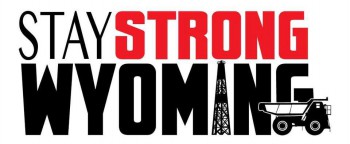(Wyoming Business Report, August 25) – The Northern Wyoming Community College District is getting a $193,000 grant for mine safety and health training from the Mine Safety and Health Administration.
The district encompasses three counties and serves about 4,000 students at Sheridan College, Gillette College and outreach centers in Buffalo, Kaycee and Wright. The colleges are in the heart of Wyoming’s mining districts, making them ideal candidates to pass along safety training for miners.
Mining is a dangerous and sometimes lethal activity involving building-sized industrial equipment. According to MSHA, the death toll for coalmining nationwide has climbed to nine miners so far in 2014. Wyoming with its relatively safe surface mines hasn’t been immune to the deaths. In 2013, two miners died on the job after a clean year in 2012. The state hadn’t seen two deaths in mines since 2005. Since then, 2007, 2008 and 2011 each saw one mining death in the Cowboy State.
No miners have died in Wyoming in 2014 thus far, but a Sheridan resident working just over the Montana border in Cloud Peak’s Spring Creek Mine died in June.
MSHA said that overall it allocated about $8.3 million to safety and health education nationwide for fiscal year 2014, distributing cash to 46 states and the Navajo Nation.
“Grantees will use the funds to provide federally mandated training to miners,” an MSHA release stated. “The grants cover training and retraining of miners working at surface and underground coal and metal and nonmetal mines.”
After the funds arrive into the Northern Wyoming Community College District, the schools can then use the money to tailor mining programs to local needs, “including mining conditions and hazards miners may encounter.”
The grants have been distributed since 1971 as authorized by the 1969 Federal Coal Mine Health and Safety Act.
“These state grants support the safety and health mission contained in the Mine Act,” said Joseph Main, assistant secretary of labor for mine safety and health. “These federal funds will enable miners to better prepare for the task at hand and arm them with the proper knowledge to avoid accidents and injuries.”
According to MSHA, some states also use the grants to support mine emergency response efforts.
Communicating and Promoting the Mining Industry
Mission
The Wyoming Mining Association serves as a unified voice, providing value at a reasonable cost to its membership, by communicating, influencing, and promoting issues on behalf of the mining industry.
WMA promotes the mining industry by communicating with elected officials, regulators, educators, and the public in a credible way that encourages trust and confidence, and earns respect as a reliable source of information on issues pertinent to the industry.
Upcoming Events
WMA Uranium Industry Committee Meeting
When: Wednesday, May 15, 2024
Where: Casper, Wyoming
Time: 9:00am
Who: WMA Uranium Member Company Representatives, Patron Level MAW Members
2024 WMA Annual Annual Convention – CLICK HERE to Register and for more information!
When: June 5-7, 2024
Where: Cody, Wyoming
Who: WMA and MAW Member Company Representatives, Invited Guests
WMA Board of Directors Meeting
When: Wednesday, June 5, 2024
Where: Cody, Wyoming
Time: 9:00am
Who: WMA Board of Directors, WMA and MAW Member Company Representatives
Mining Associates of Wyoming (MAW) Board of Directors Meeting
When: Wednesday, June 5, 2024
Where: Cody, Wyoming
Time: 10:30am
Who: MAW Board of Directors and MAW Member Company Representatives
The Mining Claim ONLINE – CLICK HERE TO VIEW!
Wyoming Mining Association Buyer’s Guide
2022-23 Concise Guide to Wyoming Coal
Concise Guide to Wyoming Uranium
Concise Guide to Wyoming Bentonite
2022-23 Concise Guide to Wyoming Trona and Soda Ash
Wyoming’s World Class Mine Reclamation – CLICK HERE To Learn More!
Search This Site
Contact Us
Wyoming Mining Association
1401 Airport Parkway Suite 230
Cheyenne, WY 82001
(307) 635-0331 Phone
